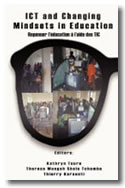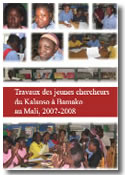Philanthropy is booming in Africa, but the money is not yet feeding through to research February 23, 2012
Munyaradzi Makoni
 The act of giving is an age-old tradition in Africa, and recent economic gains have fuelled a philanthropy boom on the continent.
The act of giving is an age-old tradition in Africa, and recent economic gains have fuelled a philanthropy boom on the continent.
But while philanthropic funding from the developing world is a staple for research activity in Africa, home-grown givers have yet to channel their money towards research.
This may yet change. African policymakers are working on an African science and technology fund supported by gifts from the continent’s businesses. But progress on the initiative has been slow, and some experts think that a lack of science and technology funding from the country’s government is holding back development.
The rich give…
Africa’s philanthropic boom has been fuelled in part by its growing number of ultra-rich, who have made their fortune in sectors such as mining, financial services, construction and telecommunication.
Mo Ibrahim, a Sudanese national, used part of his fortune from the sale of Celtel, a mobile phone company, to set up a foundation that supports good governance.
Theophilus Danjuma, a retired general and Nigerian oil baron, gave US$100 million of his own funds to his personal charity in 2010. His TY Danjuma Foundation promotes education, free healthcare, policy advocacy and poverty alleviation.
Politicians such as Nelson Mandela, John Kufour and Thabo Mbeki have also established foundations, as have sport and celebrity personalities.
But while charitable funding contributes millions of dollars to African science through international donors like the Bill and Melinda Gates Foundation and the UK medical research charity the Wellcome Trust, Africa’s own foundations have yet to do the same.
In South Africa, charities like the Cancer Association of South Africa offer research grants. But such charities do not exist in most other African countries.
“I am unaware of African philanthropists in the research arena,” says Sabiha Essack, dean of the school of health sciences at the University of KwaZulu Natal in South Africa.
Her school has an endowment fund which gets money from pharmaceutical companies. But the fund only supports educational grants.
“Ours is a minimal endowment fund solicited largely from big pharmaceutical companies and a few national companies. The funding is not for research, but for undergraduate student support,” she said.
Tax cuts could help
One of the reasons African philanthropy does not support innovation and research is that there are no tax benefits for charitable contributions, says Calestous Juma, professor of international development at Harvard University in the US.
“The legal basis exists and is on a selective basis but not for supporting innovation. Many countries that donate to African science have laws that govern the creation of philanthropic foundations,” says Juma.
To his mind, African countries need such laws. “African science is underfunded, not because of the lack of money but because of the lack of laws and institutions that support philanthropy,” he says.
Ministries may be reluctant to offer tax incentives, he says, as it would involve a cut in their revenue. However, the long-term benefits of boosting funding for science would offset the loss. Tax cuts for charitable donations to research should be part of countries’ innovation strategies, he says.
African governments need to lead the way by prioritising science in order to encourage others to invest, adds Ethiopia-born Mammo Muchie who holds a research chair at South Africa’s Institute for Economic Research on Innovation, based in Tshwane.
Most African governments have not yet reached their goal of spending 1 per cent of GDP on research and development, he says. “If the policy makers fail, how can one expect that the wealthy philanthropists can be incentivised to show commitment to support R&D?”
Slow progress so far
There have been efforts on the continent to encourage more African givers to fund research, but little has come of them so far.
In 2009 the United Nations for Economic Commission for Africa (UNECA) based in Ethiopia’s capital Addis Abba, engaged a consultant to draw up plans for an African Science Philanthropy Initiative. This was envisaged as a common kitty where African donors could pool their funding, which would then be allocated to science projects on the continent.
But before the ASPI plan was ready, the initiative merged with another initiative developed at the UNECA in 2010 to create an African Science, Technology and Innovation Endowment Fund, fuelled by donations from both private individuals and African businesses.
The ASTIEF, as the fund is known for short, has got financial commitments from Nigeria’s Zenith Bank and Bank of Industry of Nigeria, Zemen Bank of Ethiopia and Ethiopian Airlines, UNECA says. Other funders include the African Business Roundtable, a grouping of business leaders, and one insurance company and the UNECA itself.
However, the fund has yet to offer a single grant, and it is not clear when it will start doing so. UNECA does not want to disclose how much money it has gathered so far, or what the target is for donations.
The interest in steering African philanthropy towards science is a good sign, says Muchie. But the effort remains small and sporadic.
“We can even say there is a sign of success, but the scale and the real tangible result from the philanthropy input is still very minimal. In fact the private sector is more involved than the civil society anchored philanthropy inputs to date,” he says.
Source : African philanthropists Club (PDF)



Financement endogène de la recherche en Afrique de l’Ouest et du Centre, http://idl-bnc.idrc.ca/dspace/handle/10625/48328
Endogenous mechanisms for financing research in West and Central Africa (Burkina Faso, Cameroon, Ghana and Senegal), http://idl-bnc.idrc.ca/dspace/handle/10625/48327